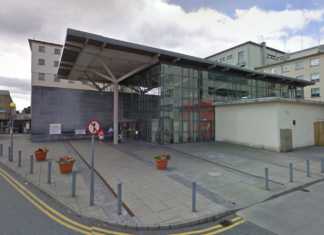
A University of Galway academic and great-great-granddaughter of Andrew J. Kettle, one of the key figures in the Land War, has revived his first-hand account of the tumultuous period in Irish history.
Professor Niamh Reilly has written a new introduction and an extended biographical essay in a newly published edition of The Material for Victory: The Memoirs of Andrew J. Kettle.
Andrew J. Kettle (1833-1916) was the co-founder of the Irish National Land League who presided over the meeting that established the national organisation 144 years ago along with Michael Davitt and Charles Stewart Parnell.
Kettle was a lifelong champion of the rights of tenant farmers, an advocate of national self-determination, an innovative and progressive farmer, and a prolific writer of letters to the editor of The Freeman’s Journal.
The new edition, developed in partnership with the Kettle’s Heritage Society, is freely available for students and scholars and anyone interested in the Land War and the social and political history of the period, having been published by Open Press at the University of Galway.
Along with comprehensive annotations by Professor Reilly and her colleague Dr Jane O’Brien, which provide indispensable context for a new generation of readers, the edition also features a foreword by Michael D. Higgins, President of Ireland.
Originally edited by his son Laurence J. Kettle (1878-1960) and published for the first time in 1958, The Material for Victory: The Memoirs of Andrew J. Kettle documents Kettle’s activism especially around the Land War of 1879-1882.
Professor Niamh Reilly said that the Material for Victory recounts Kettle’s collaboration with Parnell and his role as a leader in the formation of the Irish National Land League and the Land War, culminating in Kettle’s imprisonment in Kilmainham Jail in 1881.
“The memoirs contain fascinating behind-the-scenes stories featuring leading political personalities of the day and a unique perspective on key events from the rise of Parnell, the declaration of the “No Rent Manifesto”, and the establishment of the Ladies Land League, to the Phoenix Park murders, the failure of the First Home Rule Bill in 1886, and the ultimate downfall of Parnell following the O’Shea divorce scandal in 1891,” she said.
Drawing on her family history, Professor Reilly’s additional biographical essay provides a wealth of information about the family context of the memoirs, some 65 years after their original publication by Laurence Kettle in 1958, and more than a 100 years after Andrew J. Kettle first recorded his recollections in handwritten notes.
In particular, using currently available online civil records and newspaper articles, family anecdotes, archival material, and previously published commentary, the essay sheds light on the shared life of Andrew J. Kettle and his wife, Margaret McCourt Kettle, and their 12 children, who in addition to Laurence, included Tom Kettle, essayist, poet, Professor of National Economics and champion of social justice, who was killed in the Great War, and their sisters about whom extremely little has been written until now.
The Material for Victory is available free online – as an open access book at https://openpress.










